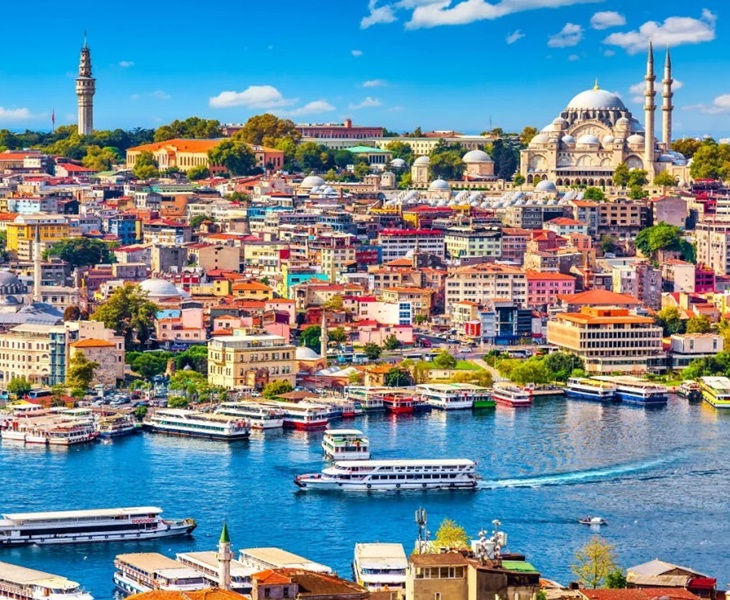Navigating the Post-Pandemic World: How International Travel Has Evolved

The COVID-19 pandemic transformed the global travel industry in ways that were once unimaginable. With the world now gradually recovering, international travel has undergone significant changes, reshaping how people explore the globe. The post-pandemic travel experience is vastly different from what it was before the pandemic, with new protocols, technologies, and trends emerging in response to health concerns, safety requirements, and changing traveler expectations. As international borders reopen and tourism rebounds, the future of travel is marked by flexibility, sustainability, and innovation.
Health and Safety Protocols: The New Norm for International Travel
One of the most significant changes in international travel post-pandemic is the heightened focus on health and safety. The need for stringent safety measures has reshaped the way airports, airlines, hotels, and tourist destinations operate. Travelers are now accustomed to additional layers of health protocols, such as health screenings, vaccination requirements, and the use of digital health passports or certificates.
Airlines and airports have introduced touchless technologies to minimize human contact and ensure a smoother, safer experience. This includes contactless check-ins, biometric boarding, and enhanced sanitation practices. Travelers are also more mindful of personal hygiene, often carrying sanitizers and wearing masks during travel.
Furthermore, countries have developed new entry requirements, such as mandatory quarantine periods or proof of vaccination, to ensure that international travel remains as safe as possible. While these regulations can be cumbersome, they have become essential in restoring traveler confidence and protecting public health.
The Rise of Flexible Travel: Adaptability Becomes Key
In response to the uncertainty caused by the pandemic, flexibility has become a core value for both travelers and the travel industry. Airlines, hotels, and tour operators have adapted by offering more flexible booking and cancellation policies. This allows travelers to adjust their plans with minimal financial penalty, ensuring they can easily reschedule trips if unforeseen circumstances arise.
The demand for flexibility extends to travel insurance as well. Many travelers are opting for comprehensive travel insurance that includes coverage for COVID-related disruptions, such as flight cancellations, border closures, or quarantine requirements. This trend reflects a shift in traveler priorities—ensuring peace of mind in an unpredictable world.
Technology and Digital Innovation: A New Era of Travel Tools
Technology has played a crucial role in the evolution of international travel post-pandemic. The need for contactless and digital solutions has accelerated the adoption of new technologies across the travel sector. Digital health passports, mobile apps for contactless check-ins, and virtual tours are just a few examples of how technology has transformed the travel experience.
Mobile apps that offer real-time information on COVID-19 restrictions, travel advisories, and health protocols have become indispensable tools for international travelers. Moreover, the growing reliance on virtual and augmented reality in tourism has allowed travelers to explore destinations remotely, providing an option for those still hesitant to travel internationally. Virtual tours of museums, historical sites, and cultural events have enabled people to experience the world from the comfort of their homes.
Additionally, digital currencies and contactless payment systems are becoming increasingly popular, allowing travelers to minimize physical contact and streamline transactions. With the widespread use of smartphones and digital wallets, the future of international travel is leaning heavily on digital innovation for both convenience and safety.
Sustainable Travel: A Post-Pandemic Priority
The pandemic has also brought global attention to the need for more sustainable travel practices. As the world slowly recovers, there is a growing awareness of the environmental impact of tourism. The travel industry is increasingly focusing on sustainability, offering eco-friendly accommodations, carbon-offsetting programs, and promoting responsible tourism practices.
Eco-conscious travelers are now more inclined to choose destinations and travel experiences that prioritize sustainability. From the rise of eco-tourism destinations to airlines offsetting their carbon emissions, there is a shift toward a more mindful and responsible way of traveling. The pandemic served as a reminder of the environmental strain caused by mass tourism, and many countries and companies are now prioritizing green initiatives to create a more sustainable future for the industry.
The Future of International Travel: What’s Next?
As international travel continues to evolve, it is clear that the pandemic has reshaped many aspects of the travel experience. Flexibility, health protocols, and sustainability will remain key factors influencing travel decisions for years to come. The post-pandemic world also offers an opportunity to rethink how we travel—whether it’s embracing new technologies, opting for more sustainable practices, or exploring less traditional destinations.
The future of international travel is not without its challenges, but it also holds great potential for transformation. As borders reopen and the world becomes more interconnected once again, travelers can expect an experience that is safer, more flexible, and increasingly aligned with the values of sustainability and technology.






















